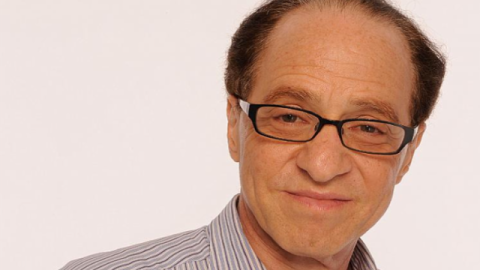Thoughts on the Future from Ray Kurzweil

Inventor, entrepreneur, author of best-selling book The Singularity is Near, and futurist Ray Kurzweil recently spoke to TIME magazine about his predictions for humanity’s future.
Some highlights:
1) Computers are becoming cheaper, smaller and more powerful. Computers will become a billion times more powerful per dollar and a hundred thousand times smaller over the next 25 years. Just notice how computers in our phones are more powerful than computers the size of rooms used to be a few decades ago. This trend will continue giving information technology tremendous potential to connect us to each other, and streamline every aspect of our lives.
2) We’ll be online all the time. We’ll be constantly connected to each other and to the Internet.
3) We’ll reprogram our bodies. As biological tools and computer power becomes cheaper and faster, we’ll be able to manipulate our genes and make our bodies stronger and healthier. For example, switching off a fat receptor gene in our cells will make it possible for us to eat as much as we want without hoarding the fat and calories (this has already been achieved in animal testing).
4) Computers will become as intelligent as humans in 20 years. Because computers can be replicated at far faster rates than humans, we can expect profound change at the time when billions of computers acquire human intelligence (this point is the Singularity).
5) We will be able to reverse aging. We should prepare our bodies for the day when biotechnology can reprogram our bodies to live much longer (which will happen within 15-20 years) and eventually to reverse aging altogether with the help of nanotechnology.
6) We will be able to “upload” our brains. We’ll be able to fully upload our brains and move it to the Internet or to any other body, biological or mechanical. This means we will be able to forever retain our memories and ‘soul’.
Kurzweil is a great popularizer of the potential for technology. He has been accused of being utopian, but to be fair, he always points out the importance of having controls, which will harness unbridled technology. Also, while his timelines are optimistic, the content of his projections are not unreasonable. When exactly his predications will occur and how society will react to them is uncertain. The Hybrid Reality Institute studies the social and economic implications of some of the technology drivers Kurzweil discusses.
In particular, we found interesting his answer to the question of how we’ll feel about God as technology progresses:
“I believe our civilization is going to be vastly more intelligent and more spiritual in the decades ahead. You can argue how we got here, but we are the species that goes beyond our limitations. We didn’t stay on the ground. We didn’t stay on the planet. Our species always transcends.”
We agree that humans will become more spiritual as technology pervades our lives, mainly to come to grips with the plethora of choices and challenges that technology will bring with it. This is an important area that needs to be studied in order to give people guidance on how to lead a balanced life in a techno-infused era.
Ayesha and Parag Khanna explore human-technology co-evolution and its implications for society, business and politics at The Hybrid Reality Institute.




